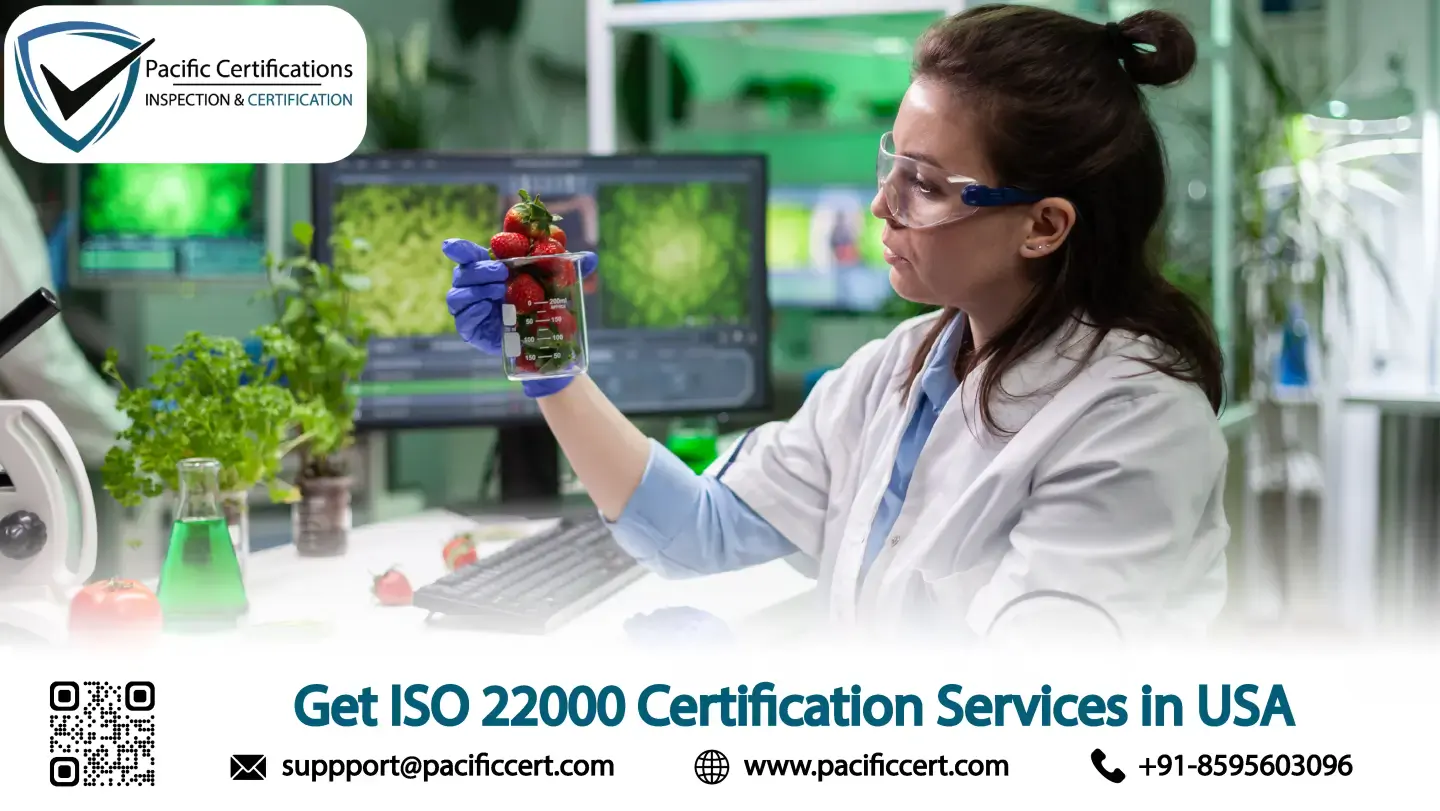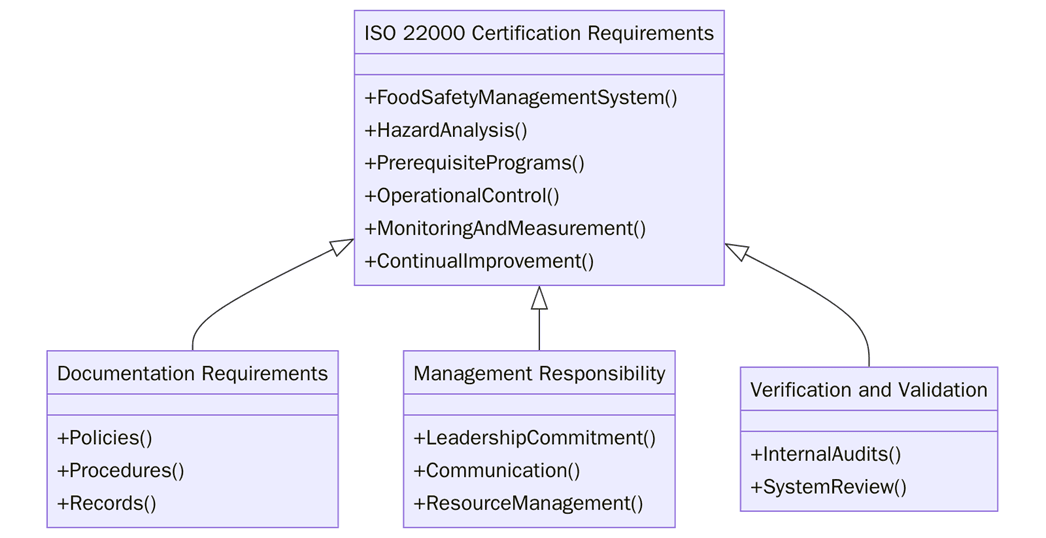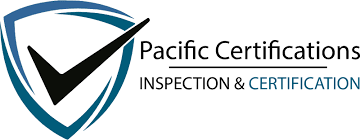ISO 22000 Certification Services in USA for Food Safety Management

Introduction
Food safety is one of the most crucial aspects of running a food business and in the United States, consumer awareness and regulatory requirements are higher than ever. Contamination, mislabelling and poor handling practices can result in recalls, financial loss and reputation damage. This is where ISO 22000 certification helps. It provides a globally accepted framework for managing food safety risks, ensuring traceability and maintaining compliance with both national and international food safety regulations.
Start your ISO 22000 certification journey with Pacific Certifications and establish global food safety credibility for your business.
Quick summary
ISO 22000 is the international standard for Food Safety Management Systems (FSMS). It integrates the principles of HACCP (Hazard Analysis and Critical Control Points) with ISO’s structured management system approach. Organizations certified under ISO 22000 can demonstrate their ability to identify, prevent and control food safety hazards throughout the supply chain. In the U.S., certification is becoming increasingly vital for producers, distributors, caterers and retailers who want to meet customer expectations, regulatory standards and global supply chain requirements.
Why ISO 22000 certification matters in the USA?
The U.S. food industry operates under strict oversight from the Food and Drug Administration (FDA) and the United States Department of Agriculture (USDA). These agencies enforce regulations to ensure public safety and consumer confidence. ISO 22000 certification complements these requirements by establishing a preventive system that reduces contamination risks and improves process transparency.
For businesses exporting to global markets, ISO 22000 certification also bridges compliance with international food trade laws. Whether your organization deals with raw materials, processing, packaging, or distribution, certification provides an assurance of control, accountability and reliability across all stages of production.
“ISO 22000 gives food businesses the tools to protect consumers, prevent hazards and build global trust through documented and traceable systems.”
Key elements of ISO 22000
What are the common requirements of ISO 22000 certification?
Achieving ISO 22000 certification requires a well-documented and consistently managed food safety system. Organizations must demonstrate commitment to hazard control, traceability and continual improvement. Below are the key requirements:

Define the scope of your food safety management system, including all products and processes.
Conduct a food safety hazard analysis to identify biological, chemical and physical risks.
Establish a HACCP plan to monitor and control critical points in your operations.
Develop food safety policies and objectives aligned with legal and customer expectations.
Maintain traceability throughout the supply chain—from raw materials to finished products.
Train employees on hygiene, safety practices and emergency procedures.
Implement monitoring and measurement tools to verify system effectiveness.
Conduct internal audits and management reviews regularly.
Maintain documentation of corrective actions and preventive measures.
Prepare for third-party audits by an accredited certification body.
Tip:When implementing ISO 22000 in the U.S., consider aligning it with the FDA’s Food Safety Modernization Act (FSMA) requirements to strengthen compliance and simplify inspections.
What are the benefits of ISO 22000 certification?
ISO 22000 certification offers far-reaching advantages that go beyond regulatory compliance. It establishes a strong foundation for sustainable growth, consumer confidence and global trade. Below are the key benefits:

Enhanced food safety control through proactive risk identification and prevention.
Regulatory alignment with U.S. and international food laws, simplifying inspections and audits.
Improved customer trust due to traceability and documented safety practices.
Reduced recall incidents, product waste and financial losses.
Better supplier coordination through standardized safety procedures.
Access to global markets, as ISO 22000 is recognized by retailers and importers worldwide.
Increased operational efficiency by integrating HACCP with ISO’s management principles.
Reduced liability risks and improved insurance credibility.
Employee awareness and accountability in maintaining hygiene and safety.
Stronger brand reputation built on transparency and responsibility.
Market Trends
Research shows that U.S. food manufacturers implementing ISO 22000 and HACCP together experience up to 40% fewer safety incidents and significantly improved compliance with FSMA inspections. These results highlight how certification drives measurable improvement in safety performance and brand reliability.
In recent years, U.S. food companies are increasingly adopting ISO 22000 as part of integrated systems that also include ISO 9001, ISO 14001 and FSSC 22000. With the growing demand for sustainability and ethical sourcing, certification now goes hand-in-hand with traceability software and blockchain-based recordkeeping. Moreover, the U.S. food export sector is witnessing a surge in ISO 22000 adoption as more trading partners demand verified food safety certifications. By 2030, food companies across the U.S. are expected to move toward fully digital food safety systems with integrated data analytics and real-time monitoring. ISO 22000 will evolve further to include environmental and sustainability elements linked to the circular economy and climate goals. Certification will also be essential for e-commerce food retailers and logistics companies involved in temperature-controlled supply chains, reinforcing food safety and consumer confidence.
How Pacific Certifications can help?
Pacific Certifications provides accredited ISO 22000 certification services for food producers, manufacturers and suppliers across the United States. Our audits help organizations strengthen governance, improve hygiene standards and build international credibility. We focus on transparent and impartial certification — not consultancy — ensuring compliance with global food safety expectations.
Request your ISO 22000 audit plan and fee estimate. We will help you map Stage-1/Stage-2 timelines and evidence requirements for your organization. Contact us at [email protected] or visit www.pacificcert.com.
Training and courses
Pacific Certifications offers accredited training programs for ISO 22000 tailored for food industry professionals in the United States. These courses enable organizations involved in food production, processing, storage, distribution, and catering to build and maintain strong Food Safety Management Systems.
Lead Auditor Training: This program is for professionals who will audit ISO 22000-based food safety systems.
Lead Implementer Training: Designed for personnel responsible for deploying or improving ISO 22000 systems
Contact [email protected] to schedule your ISO 22000 food safety training session in the USA and strengthen your compliance and system capability.
Contact Us
If you need support with ISO 22000 certification , contact us at [email protected].
Author: Alina Ansari
Read More at: Blogs by Pacific Certifications

